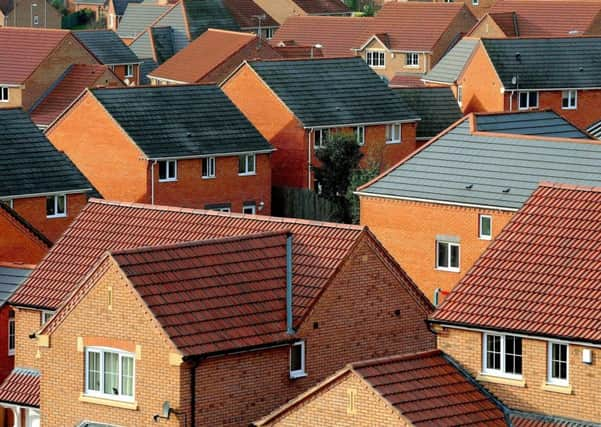Six million private renters ‘living in poverty by 2040’


Increased social rents may also add billions of pounds to the housing benefit bill, according to projections by the Joseph Rowntree Foundation (JRF).
A lack of house building is said to be at the heart of the situation for British renters, with political leaders urged to act to prevent today’s primary school children being left with a housing market that increases their chances of living in poverty.
Advertisement
Hide AdAdvertisement
Hide AdThe report suggests private rents could rise by more than 89 per cent by 2040 when compared to pre-recession prices in 2008, while income over the same period may only increase by 40 per cent.
It also predicts real household income will be £45,500 in 2040 compared to £32,300 in 2008, while median average private rent prices for a two-bedroom property increases to £250 per week from £132 per week.
If this occurred, the report believes 5.68 million private renters would live in poverty in 2040 compared to 3.1 million in 2008.
The research also claims 35.2 million people will own homes in 2040, fewer than the estimated 36.1 million in 2008.
Advertisement
Hide AdAdvertisement
Hide AdIt has led JRF to suggest successive governments take measures to help control poverty rates, which include raising annual house building levels from 175,000 units in the 2020s to 200,000 by 2040.
Social rent rises should also be limited to one per cent over inflation and the fall in the proportion of affordable social housing needs to be stopped, it added.
A summary of the report, which examined the circumstances of 5,000 people between 1991 and 2008, said: “The housing system is changing, as private renting grows and social rents, at least in some parts of England, rise towards market levels.
“The ability of housing benefit to protect tenants from higher rents has already been reduced in response to rising cost pressures and this seems set to continue.
Advertisement
Hide AdAdvertisement
Hide Ad“Taken together, these pressures represent such a change to the British housing system that, in 25 years’ time, poverty rates are likely to be higher and the relationship between poverty and housing deprivation stronger.”
Julia Unwin, chief executive at JRF, said the findings were a wake-up call for political leaders.
She said: “After decades of failing to build enough, those in power have a responsibility to act now to build more genuinely affordable homes.
“Without that we are storing up trouble for the future – a price that will be paid by children starting school life this year. These high costs are bad for families, the economy and Government.
Advertisement
Hide AdAdvertisement
Hide Ad“We need a clear strategy that builds the homes we need in the right places and avoids locking low income households out of affordable homes.”
Shadow housing minister Emma Reynolds said: “This report shows that for many people the prospect of a decent home at a price they can afford is slipping out of reach.”
She added: “To tackle this crisis we need to build many more homes.”
Sam Bowman, research director of the Adam Smith Institute, said the report gave a worrying prognosis of the future for Britain’s renters, adding: “It should be a wake-up call to anyone interested in fighting poverty in Britain.
“We need to make all housing cheaper by making it easier for the private sector to build new homes.”